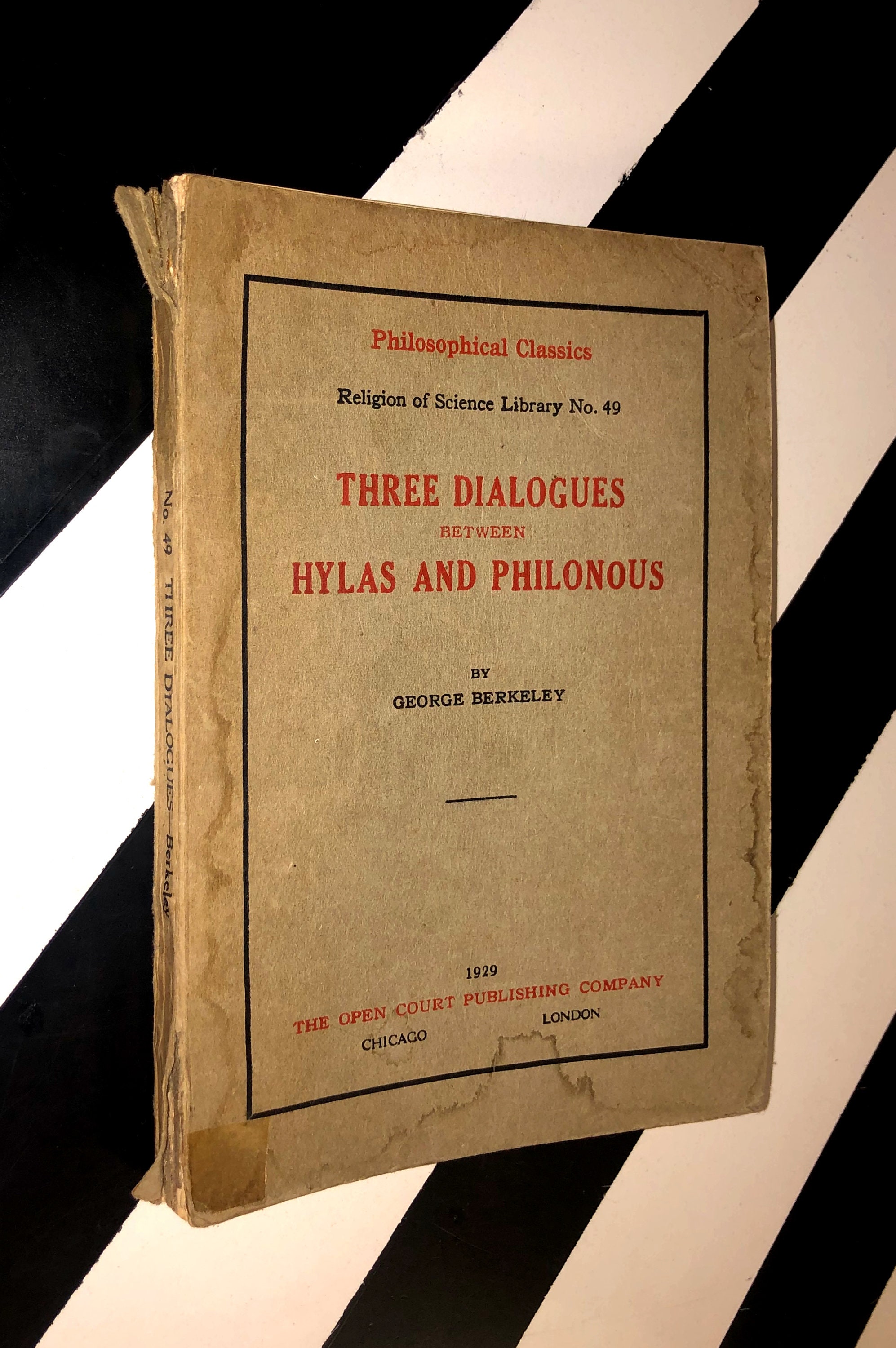

He is one of the central figures in the tradition known as Empiricism. His other works include the "Treatise Concerning the Principles of Human Knowledge" and "An Essay Towards a New Theory of Vision". He published works in philosophy, mathematics, science, and religion.

Whatever the value of the positive claims presented in this work, Berkeley foreshadows the philosophical impact of twentieth century physics, which challenges the foundations of such materialism and calls for a better understanding of both the physical and the mental aspects of reality.īerkeley was born in Ireland where he served as Bishop of Cloyne (Dublin). The implications for politics, ethics, and religion caused concern among leading intellectuals in the eighteenth century. This worldview proclaimed that all of reality consists of nothing but matter in motion, thus promoting atheism and ethical skepticism. These dialogues are between Hylas (whose name is derived from the ancient Greek word for matter) and Philonous, whose name means “lover of mind.” The new physical sciences developed in the seventeenth century supported the materialism proposed by Thomas Hobbes and several other philosophers. All rights reserved.Berkeley uses the Socratic mode of inquiry in "Three Dialogues between Hylas and Philonous" to question fundamental beliefs about knowledge and reality. These dialogues foreshadow the philosophical impact of twentieth century physics, which challenges the foundations of such materialism and calls for a better understanding of both the physical and the mental aspects of reality.Ĭopyright 2012 by Agora Publications. He insists that only spirits and ideas exist, replacing the concept of matter with the notion of God, the infinite spirit who alone provides the order and structure human beings experience as the laws of nature. Three dialogues between Hylas and Philonous by Berkeley, George, 1685-1753. Philonous refutes a variety of attempts by Hylas to establish the existence and importance of matter as a way of understanding reality. This worldview proclaimed that all of reality consists of nothing but matter in motion, apparently promoting atheism and ethical skepticism. These dialogues are between Hylas (whose name is derived from the ancient Greek word for matter) and Philonous, whose name means "lover of mind." The scientific revolution that took place in the seventeenth century supported materialism. To purchase this work from our partner Saga/Egmont please click on this link:īerkeley's Dialogues employ the Socratic mode of inquiry to examine fundamental beliefs.


 0 kommentar(er)
0 kommentar(er)
